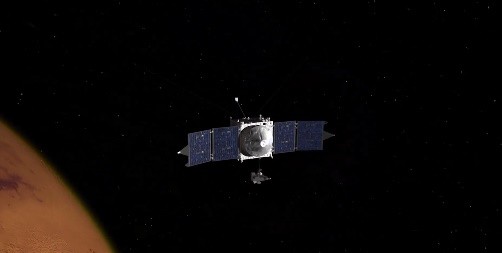



Kosmos 482, a failed 1972 Soviet Venus mission, is set to crash after orbiting Earth for 53 years. Due to a launch malfunction, it never left Earth’s orbit. Its re-entry zone spans much of the globe, but the exact crash site remains uncertain until hours before descent.

Copyright infringement not intended
Picture Courtesy: INDIAN EXPRESS
A Soviet-era spacecraft, launched over 50 years ago, is set to crash back to Earth.
The Kosmos 482 mission is a Soviet spacecraft launched in March 1972, aimed at exploring Venus, Earth’s neighboring planet. It belongs to the Soviet Union’s Venera Program, which studies Venus’s atmosphere and surface.
The spacecraft carries instruments to measure temperature, pressure, wind speed, visibility, atmospheric gases, and rock composition. These tools help scientists understand Venus’s extreme environment, which has temperatures hot enough to melt lead and an atmosphere 90 times denser than Earth’s.
Kosmos 482 is a sister probe to Venera 8. While Venera 8 successfully lands on Venus and sends data back for 50 minutes, Kosmos 482 faces a problem during launch.
A rocket malfunction stops Kosmos 482 from reaching Venus. The upper stage of the rocket, meant to push the spacecraft out of Earth’s orbit, shuts off too early because of a wrongly set timer. This leaves the spacecraft stuck in an elliptical orbit around Earth.
The spacecraft splits into four pieces: two burn up in Earth’s atmosphere within days, one (the main bus) re-enters in 1981, and the remaining piece—the landing module—continues orbiting for 53 years. However, its parachute system and batteries no longer work.
Its orbit has a 51.7-degree inclination, meaning it could crash anywhere between 52 degrees north and 52 degrees south latitude. This zone covers much of the world, including Africa, Australia, most of the Americas, and parts of Europe and Asia.
The uncertainty comes from the module’s uncontrolled descent and unpredictable atmospheric conditions. As it gets closer, scientists track its path using telescopes and models, but accurate predictions will only emerge hours before re-entry.
Must Read Articles:
Source:
|
PRACTICE QUESTION Q. "Space debris is a classic example of the tragedy of the commons." Critically analyze. 150 words |






© 2026 iasgyan. All right reserved